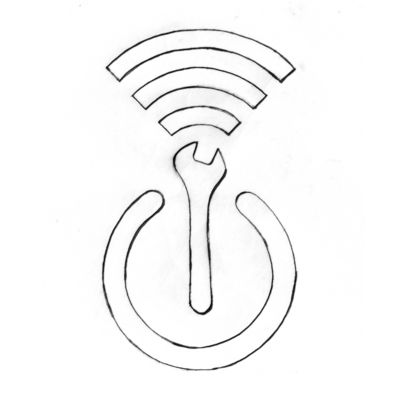A bi-weekly talk show by The Restart Project, plus a monthly documentary series produced by brilliant podcaster Dave Pickering, based on fixing triumphs, heartbreaks and wisdom shared at our community repair events – called Restart Parties – here in London. We go into real depth about good and bad design, obstacles to repair of electronics, emotional aspects of ownership, environmentally irresponsible business models, and the “end of life” of our gadgets. This podcast is for you if you'd like to fix your relationship with electronics. Let’s rethink, restart.
https://therestartproject.org/podcast/
Restart Radio: Digital archaeology with Jim Boulton
Janet and Neil are joined by Jim Boulton, ‘digital archaeologist’ and curator of the exhibition 64 Bits, a project that chronicles the history of the World Wide Web.
Looking back at our recent visit to 64 Bits at HereEast in Stratford, we talk about some of the things that stood out both for their nostalgic value, and what they can tell us about our experience of the web today.
Featuring 32 computers and 32 artwork (a total of 64 ‘Bits’), Jim’s exhibition features Tim Berners-Lee’s first ever website, displayed on the browser and NeXT computer used to code it. From there on, each website through 2005 is paired with a computer that matches it historically. For younger viewers in particular, the earlier examples may seem strange, distant and primitive. For those of us who remember these developments, it can be oddly comforting.
Jim talks about the thinking that led to the inception of 64 Bits: a 2002 exhibition at the Barbican called ‘Game On’ showcased the speed at which video games had developed. But nothing similar yet existed for websites, despite the fact that they had evolved at an even faster rate.
The sheer speed of the development of the web is what stands out at 64 Bits. And just as the internet has not stopped evolving, neither has the exhibition. In each of its iterations since it was first displayed in 2010, 64 Bits has grown in size. It remains a living, embodied archive.
From Jim’s style of digital archaeology, we have more to gain than a mere whimsical look back into the past. As computers get more powerful, the layers of code within them become less and less visible, and the multitude of components they contain become more compact.
Understanding the evolution of hardware and software helps us to imagine a more durable and lasting relationship with technology. In removing some of the mystery, we can understand computers and other gadgets as valuable objects that are inextricably intertwined with our evolution as a society.
Links:
- Jim Boulton: 64 Bits
- Archie search engine
- Geocities archive / mirror
- Internet archive
- Centre for Computing History
- BBC News: James Newman’s ‘Megaprocessor’
[Photo courtesy of ’64 Bits’]
The post Restart Radio: Digital archaeology with Jim Boulton appeared first on The Restart Project.
